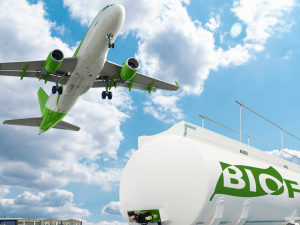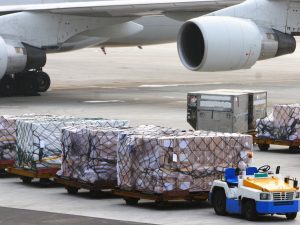TIACA has signed a joint declaration supporting the launch of the ‘Aviation 4 All industry’ declaration developed by the International Aviation Forum (IAF). The declaration was developed by the IAF to set out clear goals to achieve sustainable growth and prosperity within the industry. So far over more than 40 organisations have signed up. The declaration sets out several goals for the aviation industry, including: delivering on environmental commitments to provide a “net zero” industry; enhancing the workplace to establish an inclusive and diverse working environment; increasing connectivity to enhance global accessibility; working with governments to enhance safety and security; and integrating throughout the value chain to provide an improved customer and shipper experience, adopting seamless technology-based solutions. It also aims to develop a customer-centric culture; improve operational performance; deliver financial efficiencies; and enhance the overall positive impact that commercial aviation has on society. “We are thrilled to be invited to support initiatives such as the Aviation 4 All vision as it confirms the value the global aviation community sees in what TIACA is doing to support the air cargo industry and the declaration’s contents are fully aligned to what we see as being vital for the sustainable growth and development of our industry,” said Glyn Hughes, director general.
Read More »CCTT honours FFFAI for enhancing cross border logistics cooperation
The Federation of Freight Forwarders’ Associations in India (FFFAI) has been awarded the ‘Eurasian Transportation Excellence Award’ at the 33rd Plenary Meeting of the International Coordinating Council on Trans-Eurasian Transportation (CCTT). The event focused on enhancing logistical cooperation and addressing challenges in the Eurasian transport network. Participants discussed measures such as multimodal logistical planning, border-crossing facilitation, financial and insurance solutions, and the critical role of digitalization in logistics. This recognition highlights FFFAI’s exceptional cooperation, partnership, and contribution to the development of CCTT and the International North-South Transport Corridor. The 33rd Plenary Meeting (CCTT was held in a hybrid format with the support of the Federation of Freight Forwarders Associations of India (FFFAI). The meeting was attended by more than 100 representatives of government establishments, railways, seaports, shipping, investment and transport and logistics companies – members and partners of CCTT – from 18 countries (Russia, India, Iran, Kazakhstan, R. Korea, UAE, Austria, Germany, Singapore, Thailand, Egypt, Belarus, Azerbaijan, China, Mongolia, Hungary, Czech Republic, Turkmenistan).
Read More »Swiss WorldCargo joins WebCargo for digital bookings
Swiss WorldCargo has added its capacity to online booking portal WebCargo as part of efforts to expand its digital presence. Through the partnership, the airline’s bellyhold capacity will be available to book online by WebCargo’s forwarder users. The company added that the new partnership with WebCargo would enhance digital presence. The airline said its product portfolio will be bookable on WebCargo for selected markets in Europe, Asia and the Americas. This includes Swiss General Cargo and Swiss Pharma and Healthcare. These products can be paired with the Celsius Passive transportation solution for temperature-sensitive shipments and the X-Presso option for expedited transportation.
Read More »‘Global air cargo continues to manage strong demand growth’
Global air cargo demand showed no signs of slowing down in November as volumes recorded a 13th consecutive month of double-digit growth and load factors hit their highest level since April 2022, according to the latest market analysis by Xeneta. Demand rose +10% year-on-year in November, fuelled by the continued boom in e-commerce. This, coupled with only a marginal +2% growth in air cargo capacity, contributed to global air cargo spot rates (valid for one month) also reaching their highest level in nearly two years at USD 2.90 per kilo, a sixth consecutive month of double-digit year-on-year growth. The air cargo market’s strong monthly performance in 2024 had led to hopes of a ‘peak of all peaks’ in Q4 from some sectors of the market. Niall van de Wouw, Xeneta’s Chief Airfreight Officer, however, says the industry has done well to avoid it. “The peak of all peaks should not be a goal. It should be avoided because of the imbalance it creates between winners and losers. 2024 had all the ingredients to see crazy peak season rates but the fact we haven’t seen this situation develop is another sign of the maturity we previously referenced in the global air cargo market. What we witnessed in 2023 was a mess and a valuable lesson. In 2024, we are seeing those lessons put into practice,” he said.
Read More »‘Investment in efficiency, capacity expansion, and tech integration remains essential’
Amit Tandon, CEO & MD, Asia Shipping India says, “Currently, India’s airports handle 6.5 million tonnes of cargo annually, with plans to expand this capacity to 10 million tonnes by 2030. Modernisation initiatives by the Airports Authority of India include upgrading 150 smaller airports to enhance cargo handling capabilities through multimodal hubs, cold storage facilities, and digital integration. These measures aim to reduce logistics time and costs and establish India as a trusted global trade and transshipment hub. While advancements in air cargo and logistics infrastructure are promising, sustained investment in efficiency, capacity expansion, and technological integration remains essential to drive the sector’s growth and meet the demands of an increasingly dynamic market.
Read More »‘Surge in cargo volumes driven by geopolitical situations, rise in e-com, pharma exports, & China +1 strategy benefitting India’
Pradeep Panicker, CEO, GMR Hyderabad International Airport says, “The air cargo and logistics sector has witnessed significant advancements in recent years, yet infrastructure standards remain a mixed bag. While major hubs boast world-class facilities, regional airports often lack the necessary infrastructure for seamless operations. Major challenges include but not limited to outdated cargo terminals, limited cargo handling capacity, and inadequate cold storage facilities for temp-sensitive cargo. Further, lack of standardized processes and digitalization hinders efficiency and transparency. Few airports in India are experiencing increasing congestion, particularly with the rise in air cargo volumes driven by current geopolitical situation, emergence of global e-commerce, increase in pharmaceutical exports, and China +1 strategy benefitting India. However, there’s a growing emphasis on modernizing infrastructure. Further, investments in automation, safety & security, and sustainable practices are driving positive changes in the sector. Collaboration between stakeholders, including governments, airlines, and logistics providers, is crucial to bridge the gap and ensure the sector’s long-term competitiveness.”
Read More »‘Modernising 150 underutilised airstrips will boost air cargo capabilities & connectivity’
Pramod Menon, Vice President – Cargo, Rainbow Aviation says, “The government has launched initiatives to modernise 150 underutilised airports and airstrips across the country, which will boost air cargo capabilities and regional connectivity. In terms of air cargo infrastructure, there are plans to establish dedicated cargo terminals, and cold storage facilities for perishables. Automated storage and retrieval systems, mechanised cargo handling systems, and Electronic Data Interchange (EDI) systems will also be introduced to enhance efficiency and transparency. However, despite these efforts, there is still a need for significant investment in logistics infrastructure, including basic requirements of warehousing, transportation, and technology upgrades. The Indian logistics sector is expected to grow significantly, driven by the e-commerce boom, Make in India Initiative (government initiatives), and investments in infrastructure. Overall, while there have been notable improvements in air cargo and logistics infrastructure, there is still a long way to go to meet the growing demands of the sector.”
Read More »‘Public-private partnerships will support growth, drive investments in green infra, capacity’
Arun Chandra, BIAL, Vice President – Aviation Business, BIAL says, “To support the growing demand, Public-private partnerships should drive investment in green infrastructure, ensuring sustainability while expanding capacity. Furthermore, the government, in collaboration with stakeholders, should evaluate existing procedures and processes, aiming to adopt global best practices. This will help streamline air cargo operations in India, making them more efficient and growth focused. BLR Airport with its enhanced connectivity and state-of-the-art infrastructure, has established itself as a key airport for air cargo operations in India, enabling seamless global trade. In FY 2023-24, BLR Airport handled 44% of South India’s total perishable cargo and contributed 28% to the national perishable cargo share, showcasing its pivotal role in supporting industries reliant on temperature-sensitive logistics. The standards of infrastructure in the air cargo and logistics sectors have witnessed significant progress in recent years, with technological advancements, cold chain facilities, and streamlined customs processes. However, India’s air cargo and logistics sector requires infrastructural advancements to accommodate growing demand and achieve global competitiveness specifically from sectors like the e-commerce. Modernising the cargo terminals with state-of-the-art infrastructure, streamlined processes, and digital innovation is essential to unlocking the sector’s potential and meeting international standards.”
Read More »‘ Implementing smart queuing solutions and enhancing communication through mobile apps can streamline processes’
Apeksha Gupta, Head of Skilling at VCJ Foundation says, “To tackle peak hour challenges and airport congestion, we should leverage advanced technology like AI-driven traffic management systems and real-time passenger flow analytics. Implementing smart queuing solutions and enhancing communication through mobile apps can streamline processes. Additionally, promoting staggered flight schedules and flexible check-in options can distribute demand more evenly, improving the overall passenger experience and operational efficiency at airports.”
Read More »‘Absence of regulated parking & offloading at platforms results in huge cargo bunching’
Sunil Kohli, MD, Rahat Cargo says, “The congestion mainly at the airports of metro cities begins from the cargo offloading at the limited truck-doc areas due to departure schedules of flights of several carriers coinciding with each other followed by a delayed process of weighment by the custodian. An absence of regulated parking & offloading processes at the platforms results in bunching of huge cargo at any given time. The subsequent congestion occurs for the screening process wherein large quantum of cargo queues up for their turns incurring considerable delays. Thus, all the related agencies have to provide the requisite facilities commensurate with the growth of cargo tonnage facilitating hassle free timely handling of processes. The related agencies must install additional provisions and redesign their systems and processes, wherever needed to be in readiness for any peak demand scenario. They must also consider using technology, coordination, and best practices to optimize the use of resources and minimize delays and congestions.”
Read More » Cargo Breaking News
Cargo Breaking News









